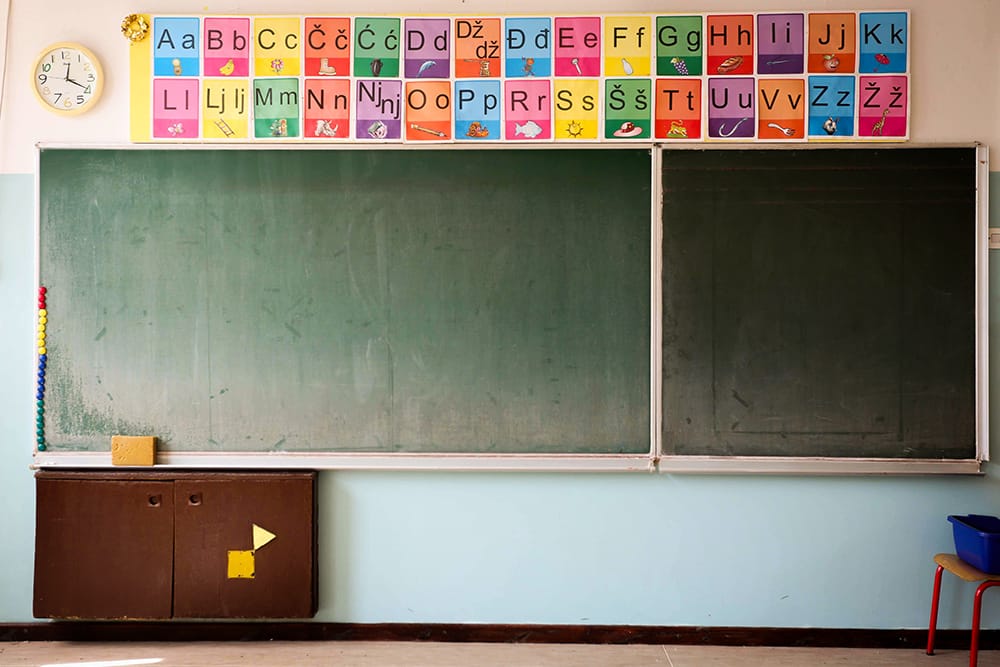The House of Representatives of the Parliament of the Federation of Bosnia and Herzegovina (FBiH) unanimously adopted a proposal for a Law On The Special Register Of Persons Convicted Of Crimes Against Sexual Freedom And Morality Concerning Children And Minors.
Once this law is adopted in the House of Peoples, a sex offender registry will be established, containing information on individuals who have been convicted of these criminal offenses and have a registered residence in the FBiH.
The Federation Ministry of the Interior and the cantonal ministries of internal affairs will maintain the registry, and the competent courts shall provide them with the judgments to be fed therein as soon as the judgments become final. In addition to the interior ministries, access to the registry will be granted to prosecutors and the Ministry of Justice of the FBiH. Additionally, institutions and organizations working with children and minors will have the ability to check the registry.
This bill was proposed by MPs Lana Prlić, Aner Žuljević, and Jasmin Duvnjak in 2019, but it only reached the session of the House of Representatives of the FBiH Parliament four years later.
“We waited for the draft to be adopted in the House of Peoples for more than two years. I hope we won’t have to wait another two years for it to be adopted in the House of Peoples,” said Prlić to the Center for Investigative Reporting (CIN).
The registry mandates that institutions when hiring for positions involving direct contact with children must check candidates against this registry. This measure is crucial to prevent convicted offenders from working in institutions where children and minors spend most of their time.
However, the law does not provide for the retroactive population of the registry with individuals previously convicted for crimes against sexual freedom and morality concerning children and minors in the FBiH. According to Prlić, everyone will have to be registered.
The registry will be valid from the date of its entry into force, but [offenders] will be added later. We have left ample room for the courts and in the special provisions …and for the Ministry of Justice of the FBiH to further regulate the registry through regulations,” said Prlić.
Also, the proposed law does not address the inclusion of convicts from the other entity and other countries residing in the FBiH, an issue that proved problematic in the case of the existing Sex Offender Registry in the Republika Srpska (RS).
Namely, the Sex Offender Registry in Republika Srpska (RS) has existed since 2018, and it is maintained by the Ministry of Internal Affairs (MUP) of RS. The registry is supposed to contain the names of all individuals who have been convicted of sexual abuse and exploitation of children under the Criminal Code of RS. However, this has not been the case, as reported by CIN at the end of 2022.
CIN revealed that at least thirteen educators in Bosnia and Herzegovina have been convicted of sexually abusing students in schools over the past decade, and more than half of them continued working with children after their convictions. Most of them were from Republika Srpska (RS), and some were not even registered in the Sex Offender Registry.
After CIN’s reporting, the Ombudsman for Children, the Ministry of Education and Culture of RS, and the RS Ministry of the Interior proposed the adoption of a new Law on the Registry to supplement the database and change the rules for its maintenance. The amendments included registering convicts who reside in RS but have permanent residence in another entity or country.
As Prlić said, additional regulation will certainly be used in the future to regulate the methods of maintaining the registry in the Federation of BiH.
“As far as I’m concerned, everyone should be registered. Of course, when the law is adopted, it will not be set in stone and can be changed”, Prlić concluded.
Also, she hopes for the harmonization of the Criminal Code of the FBiH and the Sex Offender Registry to prevent the deletion of convictions from criminal records because the registry data will be permanently stored. Under the Criminal Code, after a certain time, judgments are to be deleted from the records, and the offenders can obtain certificates confirming the absence of any criminal record.







